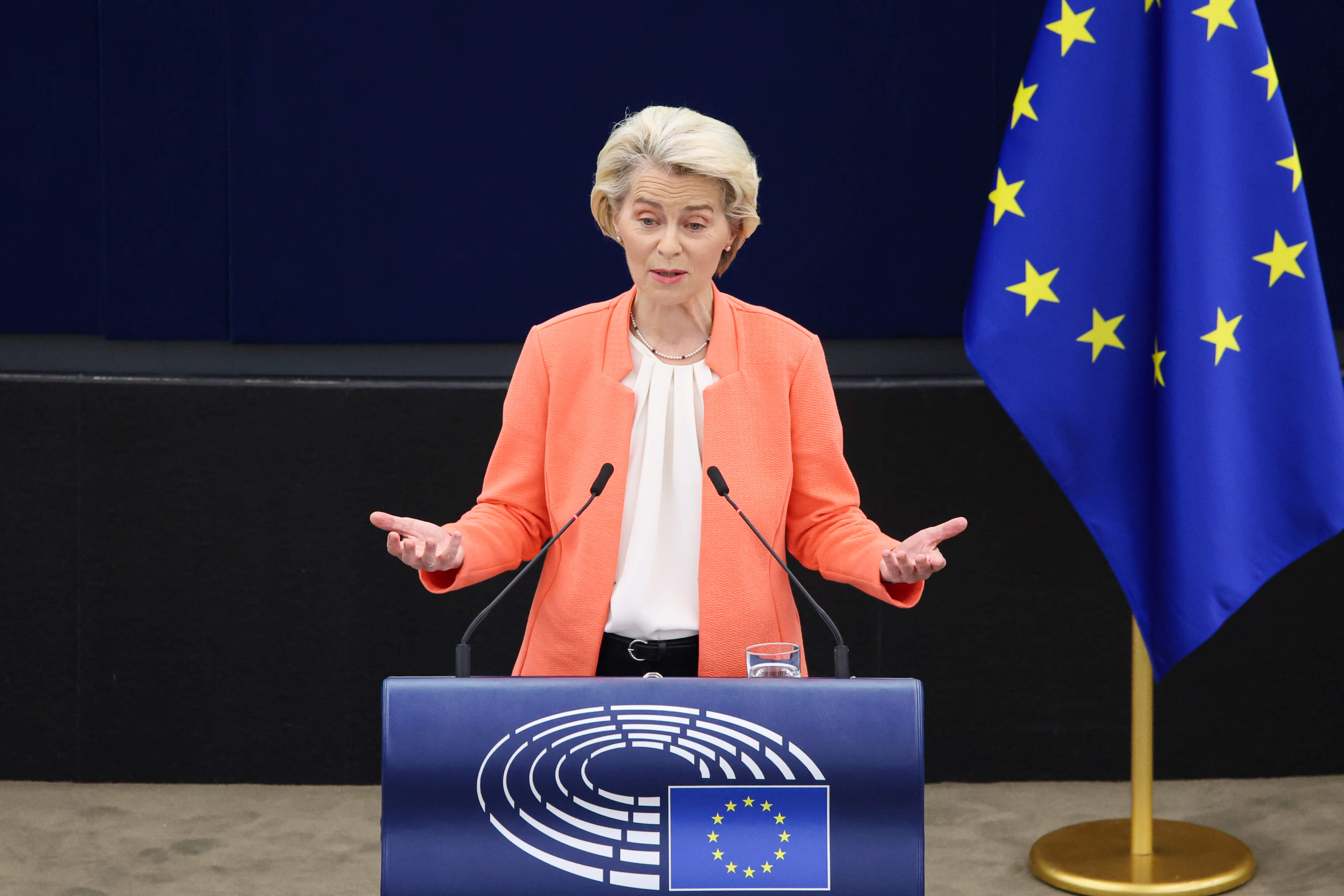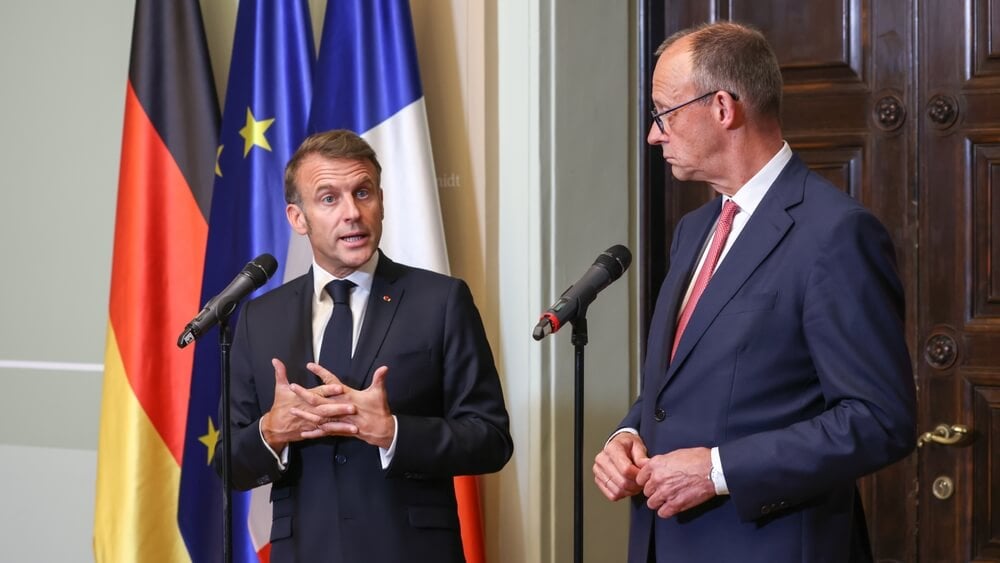Yesterday, Donald Trump, at a joint appearance with Benjamin Netanyahu, presented a framework plan for Gaza.
The idea was not new – the international community has been seeking a “day after” solution for years – but for the first time, a concrete formula was offered that combines the end of the Israeli operation, the release of the hostages, and the establishment of a temporary administration over the territory.
A day later, Ursula von der Leyen, President of the European Commission, urged the EU to support the plan, stressing that Europe “cannot afford to be a passive observer.”
At first glance, the West appears united. But the real question is whether the plan can survive in the face of crumbling infrastructure, deep mistrust, and a political framework that offers no long-term solution.
Interim administration: between the technical and the political
The central element of the plan is the establishment of a transitional government.
The formation of a Palestinian technical Committee, composed of local experts and administrators, is envisaged to manage day-to-day functions: water, electricity, health, and education. Its mandate would be limited to technical affairs, with no political capacity to negotiate the status of the territory.
An international body called the “Board of Peace” would function above the committee, with Donald Trump playing a central role, while Western and Arab representatives, including former leaders with experience in the region, are mentioned as potential members.
The Board would be tasked with providing funding, overseeing the disarmament of Hamas, and preparing for the return of the Palestinian Authority to Gaza
The Board would be tasked with providing funding, overseeing the disarmament of Hamas, and preparing for the return of the Palestinian Authority to Gaza, but only after a reform process.
In Israel’s vision of the plan, Hamas is completely excluded. None of its structures would have a role in the transitional administration.
This suits Israeli policy, but at the same time, it raises a question of legitimacy – how can the government in Gaza function if the part of society that has effectively ruled for more than a decade is entirely excluded from the process?
Regional test of confidence
The two countries most concerned about border destabilisation, Egypt and Jordan, are conditionally prepared to participate.
Their interest is clear: if Gaza remains a vacuum, the risks shift to their territories. However, they insist that the mission be internationally based and clearly limited so as not to serve as an extension of the Israeli army.
Saudi Arabia and Qatar have indicated willingness to finance reconstruction, but only on the condition that the plan does not become a permanent occupation.
Hamas rejects the plan entirely, calling it "an attempt to reduce the resistance to a humanitarian problem"
They seek mechanisms that involve the Palestinians, even if only symbolically, to ensure that financial aid has political legitimacy.
The Palestinian Authority in Ramallah is cautious—it accepts the ceasefire and the release of hostages, but it fears the plan could marginalise it and create a new structure through which the West and Israel would control Gaza.
Hamas rejects the plan entirely, calling it "an attempt to reduce the resistance to a humanitarian problem".
The support of neighbouring states depends on whether the interim administration is considered a practical mechanism for reconstruction or as a cover for permanent Israeli control.
Europe between desire and reality
Ursula von der Leyen immediately supported the plan, wanting to show that the EU is not just an ATM for reconstruction but also a political actor.
 Ursula von der Leyen immediately supported the plan, wanting to show that the EU is not just an ATM for reconstruction but also a political actor
Ursula von der Leyen immediately supported the plan, wanting to show that the EU is not just an ATM for reconstruction but also a political actor
However, this promptness conceals the lack of real unity among Union members. Spain, Ireland and Belgium want the plan linked to a clear vision for a Palestinian state.
The Baltic countries and Poland demand absolute support for Israel. France and Germany are trying to strike a balance, knowing that most reconstruction costs will fall on them.
Von der Leyen sought to prevent a scenario in which the US and Israel set the rules and Europe merely covers the costs. Yet the dilemma remains—the EU has committed to support without certainty that it will influence key decisions.
Challenges in Israel and the USA
In Israel, the plan did not receive unanimous support. Netanyahu views it as a way to demonstrate that the war has a political solution and that cooperation with Trump will restore Israel's international backing.
However, the right-wing faction of his coalition is threatening to withdraw if operations cease before the "total destruction of Hamas". Such internal division could threaten the plan's sustainability.
Some of the Republican establishment does not want the US to spend resources on managing Gaza
In Washington, some of the Republican establishment does not want the US to spend resources on managing Gaza, while military advisers warn that disarming Hamas without an Israeli presence is unrealistic.
Trump is counting on even a partial success—the release of the hostages and the restoration of basic services—to be sufficient for a political victory at home.
Humanitarian and security dimension
Today, Gaza is a devastated territory: more than two-thirds of the population are internally displaced, infrastructure is destroyed, and the health system is on the verge of collapse.
Any interim administration will face the challenge of restoring minimum functionality. That is where the EU and the Gulf states must shoulder most of the burden.
The security question is key: who will disarm Hamas and prevent its return?
However, finances alone are insufficient. The security question is key: who will disarm Hamas and prevent its return?
If this is left to the Israeli army, the interim administration will lack legitimacy. Should international forces take on this task, the question arises as to whether they possess the will to undertake such a risky mandate.
The resulting vacuum could create conditions for renewed violence, despite all the donations and declarations.
Wider significance for the West
The plan is the test. If it succeeds, it will demonstrate that the US and Israel can impose a framework and that the EU, despite its internal differences, follows that direction.
If it fails, it will reveal that the West lacks the capacity to shape events in the Middle East and that the region trusts its own solutions more than external initiatives.
 If the interim administration lacks political legitimacy and clear security guarantees Europe will revert to the role of passive financier, and the US to that of short-term mediator - Emmanuel Macron with Friedrich Merz
If the interim administration lacks political legitimacy and clear security guarantees Europe will revert to the role of passive financier, and the US to that of short-term mediator - Emmanuel Macron with Friedrich Merz
Should the plan fail, Saudi Arabia, Turkey and Iran will have the opportunity to impose their own formulas on Gaza, while Russia and China will use the situation to portray the West as powerless to implement a lasting solution.
Gaza thus remains much more than a local conflict—it becomes a measure of the global balance of power. The fate of the plan will not depend solely on whether Hamas is neutralised or if the interim administration manages to secure water and electricity.
The key lies in whether the West can establish a mechanism that outlasts short-term interests.
If the "Board of Peace" becomes a forum where the US, the EU, and Arab states jointly impose standards and control the flow of funding, Gaza could, for the first time, become the setting where a new model of international tutelage takes shape—with real capacities, not just donor promises.
If, however, the interim administration lacks political legitimacy and clear security guarantees, the scenario is predictable: the vacuum will be filled by new militias, and any attempt at reconstruction will serve only as a temporary respite until the next escalation.
In that case, Europe will revert to the role of passive financier, and the US to that of short-term mediator, while regional actors—Iran, Turkey, and Qatar—will have the opportunity to build parallel channels of influence.
The Gaza plan is, in reality, a test of Western power. If it develops into a functional administration and provides a minimum of stability, the US and the EU will show that they can shape events, not merely comment on them.
If it is reduced to a temporary arrangement that quickly collapses, it will mean that the West no longer controls outcomes even in regions where it claims a decisive role. Then, the initiative will pass to others—regional actors ready to fill the void and global rivals counting on the West's inability to implement its own decisions.